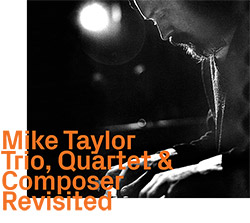
Found dead in the Thames River in 1969, pianist & composer Mike Taylor left a legacy of two solid & lyrical jazz albums, of which the complete Trio album and one track from Pendulum are remastered; but he was also a songwriter for the Eric Clapton/Ginger Baker/Jack Bruce band Cream, of which three Taylor compositions with lyrics and vocals by Baker are included.
In Stock
Quantity in Basket: None
Log In to use our Wish List
Shipping Weight: 3.00 units
EU & UK Customers:
Discogs.com can handle your VAT payments
So please order through Discogs
Sample The Album:
Mike Taylor-piano
Ron Rubin-doublebass
Jack Bruce-double bass
Jon Hiseman-drums
Dave Tomlin-soprano saxophone
Tony Reeves-double bass
Eric Clapton-guitar
Ginger Baker-drums
Click an artist name above to see in-stock items for that artist.
UPC: 752156111627
Label: ezz-thetics by Hat Hut Records Ltd
Catalog ID: ezz-thetics 1116
Squidco Product Code: 30178
Format: CD
Condition: New
Released: 2021
Country: Switzerland
Packaging: Cardboard Gatefold
Tracks 1-8 recorded in London, UK, on July 12th and 13th, 1966.
Track 9 recorded in London, UK, in October, 1965.
Tracks 10-12 recorded in London, UK, in October, 1965.
"When on January 20 1969 Mike Taylor was pulled from the River Thames - shoeless, alone, confused, ultimately drowned by his own hand - the young pianist and composer was only 31. A cynic might say that hindsight is a wonderful thing and that it was only years later, when fans began to speculate on the fatal glamour of an artist who died so young, that fellow musicians began to recollect him as a genius of modern music. At the time, they might well have thought of him - and been quite justified in so thinking - as a helpless, self-destructive eccentric, lost to drugs and delusions, hampered maybe by the thought (he had been a national service officer in the Royal Air Force) that he was just a little superior to everyone else.
The evidence, though, is that fellow-musicians did recognise something special in Taylor, even if it was never fully achieved. His compositions were explored by the New Jazz Orchestra. Colosseum made his "Jumping Off The Sun" a prog rock hit. Norma Winstone gave a haunting version of his "Song Of Love" on her Edge Of Time LP, one of the great jazz vocal albums ever. Had Taylor only known it, or cared, he was about to receive substantial royalties for his three songwriting credits on supergroup Cream's Wheels Of Fire, a smash album of 1968. Those three songs, co-written with Ginger Baker, are included here. Quite what hand Taylor had in them isn't clear now and certainly the recorded versions were probably quite distant from anything he had conceived.
The truth is that Taylor thought of himself more as a composer than as a jazz pianist. His later eccentricities walking around London with a small clay drum, living rough among the deer in Richmond Park - were part of a certain romantic detachment from the jazz community of the day. In person, he was perhaps more like the rockers, long-haired, inspired by LSD, disgusted by commercialism. While the Cream royalties worked through the system, Taylor sustained himself with odd jobs, mostly dishwashing, and borrowed funds.
He had, before his sharp and sudden decline, made two records that stand as among the most important by a British musician of the time. They are Pendulum, of which a single track is abstracted here, and the magnificent Trio, which is reproduced in its entirety. It is an astonishing set, but its qualities are not just down to Taylor. His posthumous charisma has tended to obscure the contributions of drummer Jon Hiseman, and bassists Ron Rubin and Jack Bruce. It's pleasingly characteristic of Taylor's cross-grained approach to life that a trio album should involve four players, but in fact Bruce and Rubin (the latter was the pianist's more loyal associate) only play together on the originals "Two Autumns" and "Guru", and a remarkable extended version of "While My Lady Sleeps".
Listening to it now, it's hard not to make a connection with Bill Evans' most famous recordings, and for similar reasons. It isn't just what the piano is doing, it's what is happening between piano, bass and drums. Now gone himself, but leaving an astonishing tape legacy behind him, Jon Hiseman is one of the most underrated drummers of recent times, sometimes accused of blurring everything to a rock scuffle, but constantly shifting time and metrical emphasis within that. Bruce was a bassist who often sounded as if he should be playing the cello, as indeed he once had and occasionally did in future. He plays alone on "Stella By Starlight", leaving the devoted Rubin, with his resonant, Wilbur Ware-like sound the other three tracks. It was, apparently, a misunderstanding, rather than a conscious artistic decision, to have two bass players. Bruce admitted later that he's misread his diary and turned up at the same time as Rubin, though unbooked.
Consider the opening "All The Things You Are", a more than usually complex standard, originally written by Jerome Kern and Oscar Hammerstein II for the show Very Warm In May. Its 36 bar structure set it apart from the run of Broadway tunes, and while most jazz improvisers have preferred to focus on the chorus, it's clear that Taylor knows the verse and understands the song's subtle dramatic structure, not just its "changes". The opening track on Trio, it conveys perfectly Taylor's ability to invest a tune with an air of suspended drama, of some revelation that is constantly withheld. One takes the same impression from "The End Of A Love Affair" and "Stella By Starlight", both of them familiar enough as jazz standards but again reinvested by Taylor with their original dramatic intent. The cover of Trio - designed by sculptor Jim Ritchie rather than the pianist himself, though Mike had a strong eye for visuals and often handcrafted his own scores - is a perfect metaphor for the music, a strange biomorphic form that seems to have one continuous surface wrapped in on itself. The covid pandemic has perhaps made us unusually susceptible to imagery of this sort - is it a virus? - but it perfectly conveys Taylor's sense of music as organic but deeply mysterious.
The long version of "A Night In Tunisia" from the earlier Pendulum is arguably more conventional. The presence of a saxophone might seem like a normative element, but it's more that Taylor hasn't yet quite found the group dynamic that made Trio so remarkable. Compare it, though, with something like the long tracks on Krzysztof Komeda's Astigmatic, recorded around the same time as Pendulum and it is clear that something distinct and separate was going on in European jazz at this time. European musicians responded more quickly and creatively to the challenge of rock and, though Taylor clearly had a foot in that camp - British music being much less compartmentalised than its American and continental equivalents - he was thinking how jazz could accommodate to it and still maintain its integrity.
The surrealism of Ginger Baker's lyric on "Pressed Rat And Warthog" is typical of the time but its reference to "atonal apples, amplified heat" throws a sour glance at the dominant music of the day, the curiously doctrinaire values that Taylor quietly ignored. Sadly, his "three-legged sack" was never filled again. In January 1969, Mike "went straight round the corner and never came back". "-Brian Morton, January 2021
Artist Biographies
• Show Bio for Mike Taylor "Michael Ronald Taylor (1 June 1938, Ealing, West London - 19 January 1969) was a British jazz composer, pianist and co-songwriter for the band Cream. Mike Taylor was brought up by his grandparents in London and Kent, and joined the RAF for his national service. Having rehearsed and written extensively throughout the early 1960s, he recorded two albums for the Lansdowne series produced by Denis Preston: Pendulum (1966) with drummer Jon Hiseman, bassist Tony Reeves and saxophonist Dave Tomlin and Trio (1967) with Hiseman and bassists Jack Bruce and Ron Rubin. The albums were issued on UK Columbia. During his brief recording career, several of Taylor's pieces were played and recorded by his contemporaries. Three Taylor compositions were recorded by Cream, with lyrics by drummer Ginger Baker: "Passing the Time", "Pressed Rat and Warthog" and "Those Were the Days", all of which appeared on the band's August 1968 album Wheels of Fire. Neil Ardley's New Jazz Orchestra's September 1968 recording Le Déjeuner Sur L'Herbe features one original Taylor composition, "Ballad", and an arrangement by him of a piece by Alexandre Tansman, "Study". Mike Taylor drowned in the River Thames near Leigh-on-Sea, Essex, in January 1969, following years of heavy drug use (principally hashish and LSD). He had been homeless for three years, and his death was almost entirely unremarked. In 2007, the independent record label, Dusk Fire Records, released for the first time the album Mike Taylor Remembered, a 1973 tribute to the musician recorded by Ardley, Hiseman, Ian Carr, Barbara Thompson, Tony Reeves and other major modern British jazz players. In 2015, Gonzo Multimedia published Out of Nowhere, the first biography on Taylor, by Italian writer Luca Ferrari." ^ Hide Bio for Mike Taylor • Show Bio for Ron Rubin "Ron Rubin 1933-2020 Among many distinctions, the bassist Ron Rubin, whose death on April 14 was announced in the Hampstead and Highgate Gazette, was playing with a trad jazz band led by the banjoist Ralph "Bags" Watmough on the opening night of the Cavern Club in his native Liverpool in 1957. He went on to a long career in the mainstream and modern idioms, with the bands of Humphrey Lyttelton, Sandy Brown and Al Fairweather, Tony Coe, Bruce Turner, John Picard, George Melly and John Chilton, Tony Milliner and many others. He played with such visiting Americans as Will Bill Davison, Billy Eckstine, Red Allen and Ray Nance, and in the freewheeling spirit of the time he was also briefly a member of Long John Baldry's Hoochie Coochie Men and the New Departures jazz and poetry group. [...]" ^ Hide Bio for Ron Rubin • Show Bio for Jack Bruce "John Symon Asher Bruce (14 May 1943 - 25 October 2014) was a Scottish bassist, singer-songwriter, musician and composer. He gained popularity as the co-lead vocalist and bassist of British rock band Cream. After the group disbanded in 1968, he pursued a solo career and also played with several bands. In the early 1960s Bruce joined the Graham Bond Organisation, where he met his future bandmate Ginger Baker. After leaving the Graham Bond Organisation, he joined with John Mayall & the Bluesbreakers, where he met Eric Clapton, who also was his future bandmate. His time with the band was brief. In 1966, he formed Cream with lead guitarist Clapton and drummer Baker; he co-wrote many of their songs (including "Sunshine of Your Love", "White Room" and "I Feel Free") with poet/lyricist Pete Brown. After the group disbanded in the late 1960s he began recording solo albums. His first solo album, Songs for a Tailor, released in 1969, was a worldwide hit. Bruce formed his own band to perform the material live, and subsequently formed a blues-rock band West, Bruce and Laing in 1972, with guitarist Leslie West and drummer Corky Laing. His solo career spanned several decades. From the 1970s to the 1990s he played with several groups as a touring member. He reunited with Cream in 2005 for concerts at the Royal Albert Hall and at Madison Square Garden in New York. Bruce is considered to be one of the most important and influential bassist of all time. Rolling Stone magazine readers ranked him number eight on their list of "10 Greatest Bassist Of All Time". He was inducted in the Rock and Roll Hall of Fame in 1993, and was awarded the Grammy Lifetime Achievement Award in 2006, both as a member of Cream." ^ Hide Bio for Jack Bruce • Show Bio for Jon Hiseman "Jon Hiseman, Real Name: Philip John Hiseman English drummer, record producer, recording engineer, and music publisher, who has actively worked in the music industry since the mid-1960s. Born: 21st June 1944 in Woolwich, London, England. Died: 12th June 2018. Initially began his career as a session drummer, but quickly moved on and joined The Graham Bond Organisation in 1966, with whom he stayed until 1968, when he briefly joined John Mayall & The Bluesbreakers, before forming his own act, Colosseum, with Dick Heckstall-Smith, and Tony Reeves. They recorded 3 studio albums, but were disbanded in November 1971. In 1972, he formed Tempest, who released 2 albums before matters came to a close in 1974. Along with Gary Moore, and Don Airey, he formed Colosseum II in 1975 and like the original Colosseum, they too released 3 albums, before they were instrumental in the success of the Andrew Lloyd Webber album, 'Variations'; which reached number 2 in the UK Album Charts in 1978. Later that year Gary Moore left to rejoin Thin Lizzy, and Colosseum II went the way of Hiseman's previous bands. He spent the next sixteen years on various projects with his wife, and saxophonist, Barbara Thompson, whom he had married in 1967, including live appearances, and score writing for film and television. His largest body of work, however, has been the fourteen albums that he recorded with the The United Jazz+Rock Ensemble between 1977 and 2002. Colosseum were reformed in 1994 for a reunion gig, and have toured several times since. On the death of Dick Heckstall-Smith in 2004, Barbara Thompson, who had been in the various line-ups of Colosseum, joined as a permanent member replacing him on saxophone. Hiseman's biography, by Martyn Hanson, was released in October 2010 entitled 'Playing The Band'. John and Barbara had two children." ^ Hide Bio for Jon Hiseman • Show Bio for Dave Tomlin "Dave Tomlin is an English jazz musician, he plays saxophone, flute and violin." ^ Hide Bio for Dave Tomlin • Show Bio for Tony Reeves "Anthony "Tony" Reeves (born 18 April 1943, New Eltham, South East London) is an English bass guitarist/contrabassist, noted for his "extremely prominent and complex bass sound" and use of electronic effects. As a teenager Reeves learned orchestral double bass and played in local jazz-oriented groups (also sometimes the Wes Minster Five) with Colfes Grammar School, Lewisham schoolmates, Dave Greenslade and Jon Hiseman; Reeves and Hiseman would later record with John Mayall on the album Bare Wires and then go on to form Colosseum. Keen on jazz, Reeves played in the New Jazz Orchestra and had learned many standard songs. He worked in the music industry for several years, first in the quality control department of Decca Records listening to output that ranged from medieval classical music to Chubby Checker, after four years becoming assistant producer to Tony D'Amato, then briefly a record plugger for Pye Records. In late 1964 he suggested for Pye release, and played on, the instrumental UK hit Sounds Orchestral's "Cast Your Fate to the Wind". He became assistant to Tony Hatch at Pye before leaving to become a freelance producer for CBS and Polydor and creative director of the Greenwich Gramophone Company. He also recorded with the Mike Taylor Quartet on the album Pendulum in 1965 and with Davy Graham on Folk, Blues and Beyond and Midnight Man in 1966. Shortly afterwards Reeves took up electric bass, just before Hiseman recommended him to Mayall. After two albums with Colosseum he left to concentrate on session work and production, working with the Woods Band, Sandy Denny (The North Star Grassman and the Ravens), Paul Kent, John Martyn (Bless the Weather), Day of Phoenix and Burning Red Ivanhoe from Denmark, and Chris DeBurgh. In 1972 he rejoined Dave Greenslade and formed the band Greenslade. Reeves remained with the band until 1974, recording three albums with them. In 1973 he played on Mike Taylor Remembered, a tribute to the musician, with Neil Ardley, Jon Hiseman, Ian Carr, Barbara Thompson and other major modern British jazz players. Subsequently he played with Curved Air and in jazz band called Big Chief, with former Colosseum saxophonist Dick Heckstall-Smith. He still plays with Big Chief, Blue Amba and The Warthogs, and plays double bass at The Constitution pub in Camden Town (Davy Graham's local) every other Tuesday in the Cellar Bar where he met Members Multi-Instrumentalist and song-writer JC Carroll with whom he performs and records sporadically, they recorded a live album on their first show together in ascot. here is a snippet of them https://soundcloud.com/anglocentric/shades-of-blue-acoustic. They are understood to be working on an extended raga called looking for gold and an acoustic album. Reeves is also head of the British sound technology firm MTR Professional Audio, in business for almost 30 years." ^ Hide Bio for Tony Reeves • Show Bio for Eric Clapton "Eric Patrick Clapton, CBE (born 30 March 1945) is an English rock and blues guitarist, singer, and songwriter. He is the only three-time inductee to the Rock and Roll Hall of Fame: once as a solo artist and separately as a member of the Yardbirds and of Cream. Clapton has been referred to as one of the most important and influential guitarists of all time. Clapton ranked second in Rolling Stone's list of the "100 Greatest Guitarists of All Time" and fourth in Gibson's "Top 50 Guitarists of All Time". He was also named number five in Time magazine's list of "The 10 Best Electric Guitar Players" in 2009. After playing in a number of different local bands, Clapton joined the Yardbirds in 1963, replacing founding guitarist Top Topham. Dissatisfied with the change of the Yardbirds sound from blues rock to a more radio-friendly pop rock sound, Clapton left in 1965 to play with John Mayall & the Bluesbreakers, with whom he played on one album. After leaving Mayall in 1966, he formed the power trio Cream with drummer Ginger Baker and bassist Jack Bruce, in which Clapton played sustained blues improvisations and "arty, blues-based psychedelic pop". After Cream broke up in November 1968, he formed blues rock band Blind Faith with Baker, Steve Winwood, and Ric Grech, recording one album and performing on one tour before they broke up, leading Clapton to embark on a solo career in 1970. Alongside his solo career, he also performed with Delaney & Bonnie and Derek and the Dominos, with whom he recorded "Layla", one of his signature songs. He continued to record a number of successful solo albums and songs over the next several decades, including a 1974 cover of Bob Marley's "I Shot the Sheriff" (which helped reggae reach a mass market), the country-infused Slowhand album (1977) and the pop rock of 1986's August. Following the death of his son Conor in 1991, Clapton's grief was expressed in the song "Tears in Heaven", which appeared on his Unplugged album, and in 1996 he had another top-40 hit with the R&B crossover "Change The World", and in 1998 released the Grammy award-winning "My Father's Eyes". Since 1999, he has recorded a number of traditional blues and blues rock albums and hosted the periodic Crossroads Guitar Festival. His most recent studio album is 2018's Happy Xmas. Clapton has received 18 Grammy Awards as well as the Brit Award for Outstanding Contribution to Music. In 2004 he was awarded a CBE at Buckingham Palace for services to music. He has received four Ivor Novello Awards from the British Academy of Songwriters, Composers and Authors, including the Lifetime Achievement Award. In his solo career, Clapton has sold more than 100 million records worldwide, making him one of the best-selling musicians of all time. In 1998, Clapton, a recovering alcoholic and drug addict, founded the Crossroads Centre on Antigua, a medical facility for recovering substance abusers." ^ Hide Bio for Eric Clapton • Show Bio for Ginger Baker "Peter Edward "Ginger" Baker (19 August 1939 - 6 October 2019) was an English drummer and a co-founder of the rock band Cream. His work in the 1960s and 1970s earned him the reputation of "rock's first superstar drummer", for a style that melded jazz and African rhythms and pioneered both jazz fusion and world music. Baker gained early fame as a member of Blues Incorporated and the Graham Bond Organisation, both times alongside bassist Jack Bruce, with whom Baker would often clash. In 1966, Baker and Bruce joined guitarist Eric Clapton to form Cream, which achieved worldwide success but lasted only until 1968, in part due to Baker's and Bruce's volatile relationship. After briefly working with Clapton in Blind Faith and leading Ginger Baker's Air Force, Baker spent several years in the 1970s living and recording in Africa, often with Fela Kuti, in pursuit of his long-time interest in African music. Among Baker's other collaborations are his work with Gary Moore, Masters of Reality, Public Image Ltd, Hawkwind, Atomic Rooster, Bill Laswell, jazz bassist Charlie Haden, jazz guitarist Bill Frisell and Ginger Baker's Energy. Baker's drumming is regarded for its style, showmanship, and use of two bass drums instead of the conventional one. In his early days, he performed lengthy drum solos, most notably in the Cream song "Toad", one of the earliest recorded examples in rock music. Baker was an inductee of the Rock and Roll Hall of Fame as a member of Cream in 1993, of the Modern Drummer Hall of Fame in 2008, and of the Classic Drummer Hall of Fame in 2016. Baker was noted for his eccentric, often self-destructive lifestyle, and he struggled with heroin addiction for many years. He was married four times and fathered three children." ^ Hide Bio for Ginger Baker
11/20/2024
Have a better biography or biography source? Please Contact Us so that we can update this biography.
11/20/2024
Have a better biography or biography source? Please Contact Us so that we can update this biography.
11/20/2024
Have a better biography or biography source? Please Contact Us so that we can update this biography.
11/20/2024
Have a better biography or biography source? Please Contact Us so that we can update this biography.
11/20/2024
Have a better biography or biography source? Please Contact Us so that we can update this biography.
11/20/2024
Have a better biography or biography source? Please Contact Us so that we can update this biography.
11/20/2024
Have a better biography or biography source? Please Contact Us so that we can update this biography.
11/20/2024
Have a better biography or biography source? Please Contact Us so that we can update this biography.
Track Listing:
1. All The Things You Are 5:59
2. Just A Blues 8:02
3. While My Lady Sleeps 6:23
4. The End Of A Love Affair 3:52
5. Two Autumns 6:36
6. Guru 5:12
7. Stella By Starlight 6:12
8. Abena 4:17
9. A Night In Tunisia 13:55
10. Passing The Time 4:34
11. Pressed Rat And Warthog 3:16
12. Those Were The Days 2:57
Hat Art
Improvised Music
Jazz
Free Improvisation
Melodic and Lyrical Jazz
Quartet Recordings
Quintet Recordings
Rock and Related
Song Based Music
Trio Recordings
Jazz Reissues
Staff Picks & Recommended Items
New in Rock Forms
Top Sellers for 2021 by Customer Sales
Jazz & Improvisation Based on Compositions
Hat Hut Masters Sale
Search for other titles on the label:
ezz-thetics by Hat Hut Records Ltd.


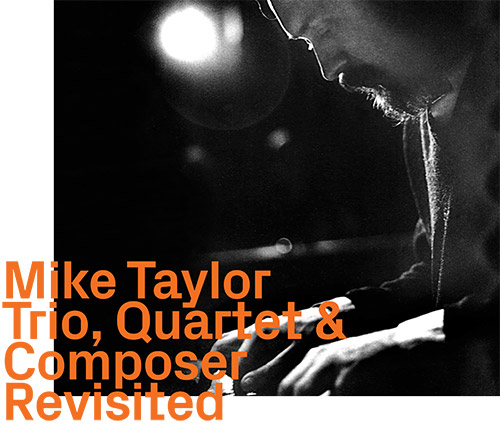

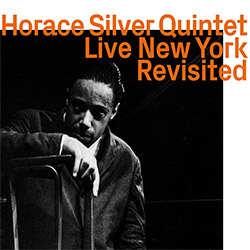
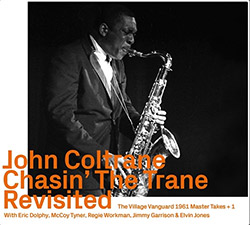
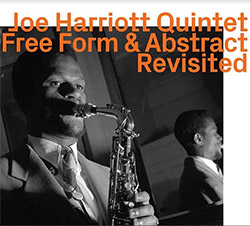

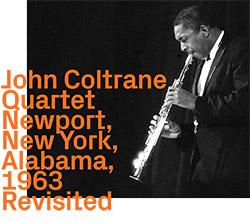



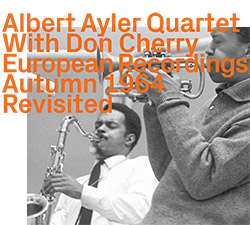

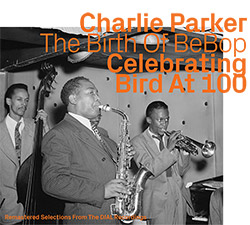
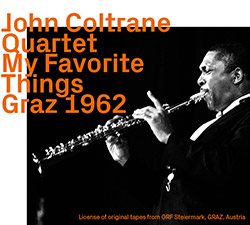
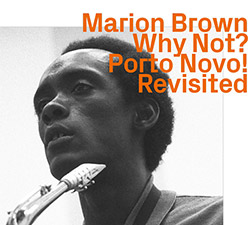
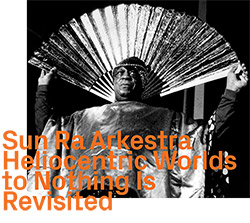
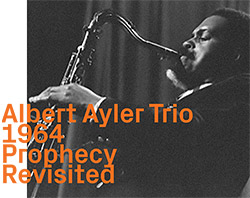
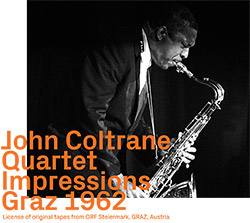


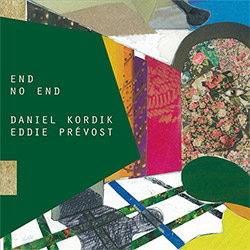







![Guy, Barry / Ken Vandermark: Occasional Poems [2 CDs]](https://www.teuthida.com/productImages/misc4/34849.jpg)
![Novoa / Carter / Mela Trio: Vol.1 [VINYL]](https://www.teuthida.com/productImages/misc4/35236.jpg)


![Elephant9 : Mythical River [VINYL]](https://www.teuthida.com/productImages/misc4/34624.jpg)
![Evans, Peter (Evans / Eldh / Black): Extra [VINYL]](https://www.teuthida.com/productImages/misc4/35279.jpg)

![McPhee, Joe: Straight Up, Without Wings [BOOK]](https://www.teuthida.com/productImages/misc4/35454.jpg)
![Jeck, Philip: rpm [2 CDs]](https://www.teuthida.com/productImages/misc4/35455.jpg)













![Barker / Parker / Irabagon: Bakunawa [VINYL]](https://www.teuthida.com/productImages/misc4/35533.jpg)
![Blaser, Samuel / Marc Ducret / Peter Bruun: Dark Was The Night, Cold Was The Ground [VINYL 10-inch]](https://www.teuthida.com/productImages/misc4/35492.jpg)








![Warren, Kenny (Warren / Hoffman / Ellman): Sweet World [VINYL]](https://www.teuthida.com/productImages/misc4/35451.jpg)




![Blake, Ran / Dave Knife Fabris: Live Amsterdam 2006, First Visit [CD + POSTCARDS]](https://www.teuthida.com/productImages/misc4/35275.jpg)













![DNS: Taking Big Bites Of The Khandas Three Cafes Deep [2 CDs]](https://www.teuthida.com/productImages/misc4/35334.jpg)




![Cleaver, Gerald: The Process [VINYL]](https://www.teuthida.com/productImages/misc4/34966.jpg)




![Alva Noto: HYbr:ID II [VINYL 2 LPs]](https://www.teuthida.com/productImages/misc4/35201.jpg)

![Baron, Derek / Luke Martin: Distinct and Concealed [CASSETTE + DOWNLOAD]](https://www.teuthida.com/productImages/misc4/35079.jpg)

![Lyle, Erica Dawn : Colonial Motels [CASSETTE + DOWNLOAD]](https://www.teuthida.com/productImages/misc4/35080.jpg)









![Sanna, Claudio: Compositori Sardi Contemporanei II [2 CDs]](https://www.teuthida.com/productImages/misc4/35317.jpg)







![Zurria, Manuel: Fame di Vento [3 CDs]](https://www.teuthida.com/productImages/misc4/35167.jpg)

![Granberg, Magnus / Nattens Inbrott / Skogen: Holde Traume, Kehret Wieder! [2 CDs]](https://www.teuthida.com/productImages/misc4/35038.jpg)
![Frey, Jurg: Outermost Melodie [2 CDs]](https://www.teuthida.com/productImages/misc4/35039.jpg)

![Pavone, Jessica: Reverse Bloom [VINYL]](https://www.teuthida.com/productImages/misc4/34895.jpg)




![Modney (Modney / Wooley / Gentile / Roberts / Pluta / Symthe / ...): Ascending Primes [2 CDs]](https://www.teuthida.com/productImages/misc4/34852.jpg)









![Elephant9 with Terje Rypdal: Catching Fire [VINYL 2 LPs]](https://www.teuthida.com/productImages/misc4/35355.jpg)
![Deerlady (Obomsawin, Mali / Magdalena Abrego): Greatest Hits [VINYL]](https://www.teuthida.com/productImages/misc4/34876.jpg)




![Haino, Keiji: Black Blues [2 CDs]](https://www.teuthida.com/productImages/misc4/35109.jpg)

![Surplus 1980: Illusion of Consistency [CD]](https://www.teuthida.com/productImages/misc4/35069.jpg)
![Staiano, Moe: Away Towards the Light [VINYL + DOWNLOAD]](https://www.teuthida.com/productImages/misc4/35037.jpg)



![Caveira (Gomes / Sousa / Abras / Ferrandini): Ficar Vivo [VINYL]](https://www.teuthida.com/productImages/misc4/34643.jpg)
![Gregg, J. J. / David Van Auken: Lunar Prairie [CD w/ DOWNLOAD]](https://www.teuthida.com/productImages/misc4/34611.jpg)

![Coultrain: Mundus [VINYL]](https://www.teuthida.com/productImages/misc4/32439.jpg)
![Mattin: Songbook #6 [VINYL]](https://www.teuthida.com/productImages/misc4/27317.jpg)
![Punkappella: Wake Up [7-inch VINYL]](https://www.teuthida.com/productImages/misc4/17519.jpg)
![Residents, The: WARNING: UNiNC.: Live And Experimental Recordings 1971-1972 [VINYL 2 LPs]](https://www.teuthida.com/productImages/misc4/31521.jpg)
![Coultrain: Phantasmagoria [VINYL]](https://www.teuthida.com/productImages/misc4/30142.jpg)
![Lennon, Sean Ono: Asterisms [VINYL]](https://www.teuthida.com/productImages/misc4/34517.jpg)

![Coley, Byron: Dating Tips for Touring Bands [VINYL]](https://www.teuthida.com/productImages/misc4/17906.jpg)

![Lost Kisses: My Life is Sad & Funny [DVD]](https://www.teuthida.com/productImages/misc4/lostKissesDVD.jpg)